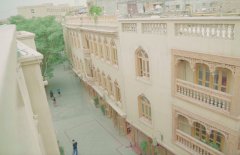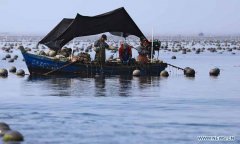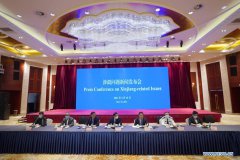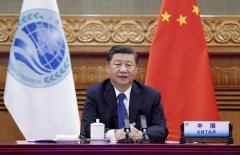There was not one word of truth in Western media’s anti-China reports on Xinjiang, French journalist Maxime Vivas wrote in his new book Ouïghours, pour en finir avec les fake news (The End of Uygur Fake News) released by Éditions de la Route de la Soie (the French Silk Road Publishing House) at the end of 2020.
Vivas, who has been to Xinjiang twice, cited many details in his book to refute the fake news produced by Western journalists.
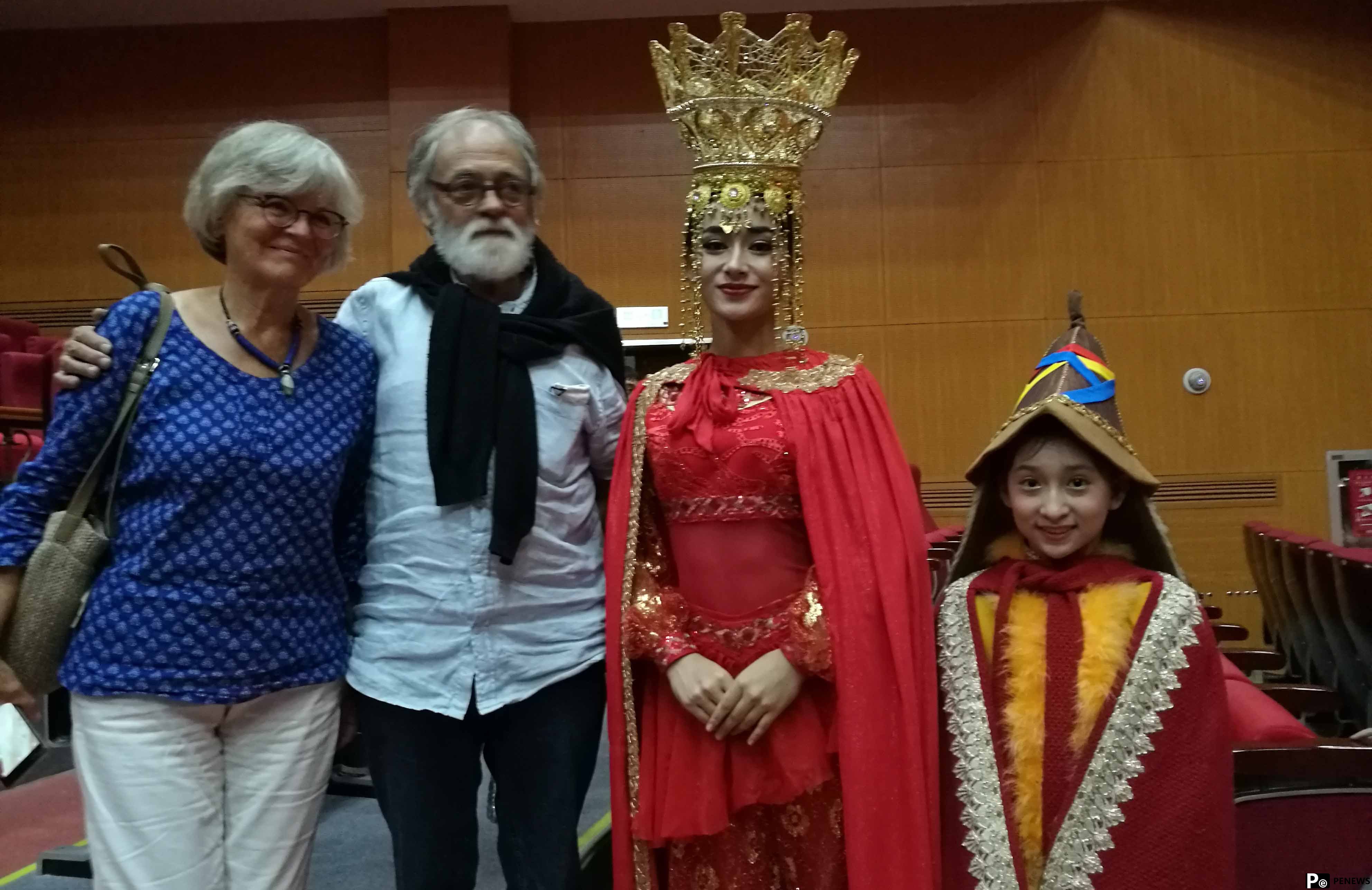
Maxime Vivas in Xinjiang, 2018. (Photo provided by Maxime Vivas)
Vivas visited Xinjiang with about 40 journalists from 20 different countries in 2016. Two years later, he went to the region with his spouse at the invitation of the Xinjiang Production and Construction Corps.
Travelling around the region by minibus and plane, they went to big cities such as Urumqi and Kashgar as well as a number of villages. They visited various places such as farms, factories, schools, hospitals, mosques and cultural centers. The large solar panels and widespread use of electric bicycles left a deep impression on him.
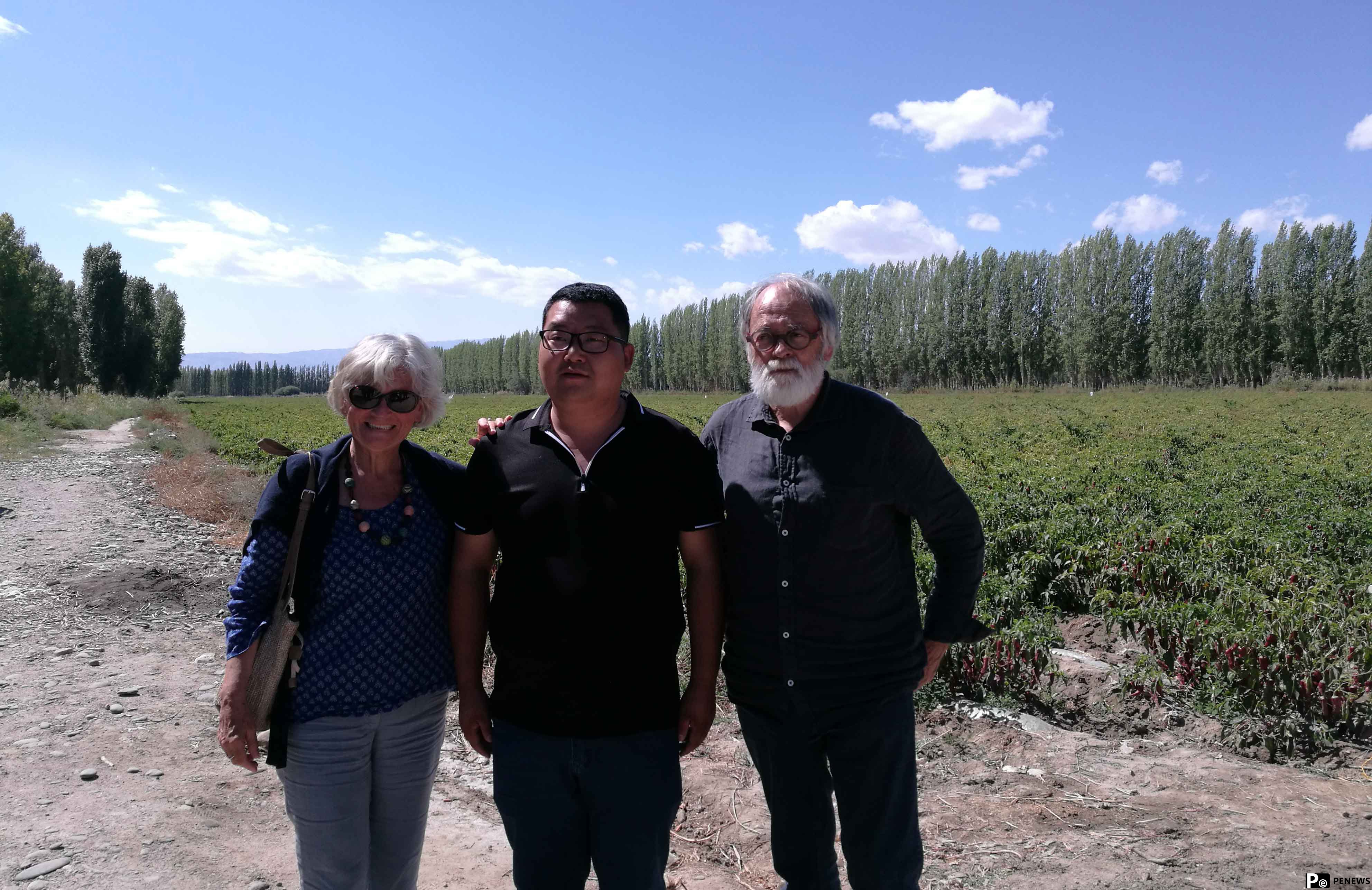
Maxime Vivas visited the pepper field in Xinjiang. (Photo provided by Maxime Vivas)
He was amazed by the rapid transformation in building construction, particularly of a mosque in Kashgar, which was grander than the cathedral of Notre Dame de Paris.
He recalled the tears of joy of a 41-year-old Uygur female entrepreneur who, with the assistance of the Chinese government, had built a garment and textile factory in a village and employed 80 female villagers. Thanks to this factory and the scholarship the country provided, her son was able to study abroad.
He also saw local girls in leotards dancing in a cultural center. “If this place had been controlled by Islamic extremists, the girls wouldn't have had the freedom to dance like this,” he said.
Vivas, who has looked deeply into China’s policies in Xinjiang, noted that the policies fell into two categories. One is to help promote the development of Xinjiang, including measures to help locals get access to education, acquire vocational skills, study the language, help young Uygur people to get a college education, and establish factories and enterprises. He called them a set of proactive and preferential policies for ethnic minorities. The other category is the Chinese government's policies to control potential threats of terrorist attacks.
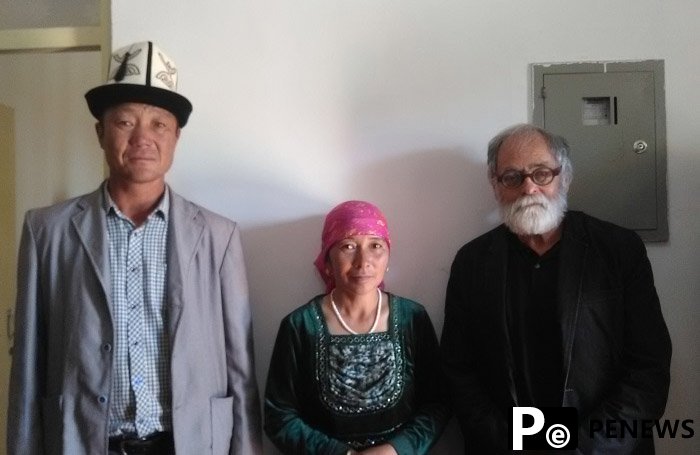
Maxime Vivas with a Uyghur couple. (Photo provided by Maxime Vivas)
Vivas said that French people had experienced terrorist attacks, but did not know that China had also suffered from a large number of similar attacks. Some fanatics had been brainwashed by terrorist organizations, learned how to use weapons, and might come back to China. That is why China is firm in its fight against terrorism, fundamentalism and separatism.
“What I saw is that the Chinese government is staying very vigilant and is trying to prevent these attacks,” he noted, adding that it will be very dangerous if an "Islamic extremist regime" is established in such a large region with rich resources, and would pose a huge threat to everyone in Xinjiang.
Vivas, who has carried out detailed research into the fake news about Xinjiang in the international community, noted that a global anti-China campaign started in the U.S. It was the U.S. that drew the world's attention to Xinjiang, with the CIA playing an important role. It was hard to say whether France or Europe was independent. When the U.S. started it, France and Europe chose to follow the U.S., he added
He stressed that the rumor about "genocide" in Xinjiang, and the allegation of "concentration camps" that held a million people all started in the U.S.
Citing the concept of a "circular flow" of information by renowned French sociologist Pierre Bourdieu, he said that Western journalists copied stories from each other without confirming the information. And after politicians heard what these journalists had said, they would quickly talk about the same stories. “Repeat a lie often enough and it becomes a truth.”
He underlined the importance of the Charter of Munich, or the Munich Declaration of the Duties and Rights of Journalists. According to the Charter, journalists are bound to abide by the code of professional ethics. Instead of lying, they should check the authenticity of information and correct any errors.
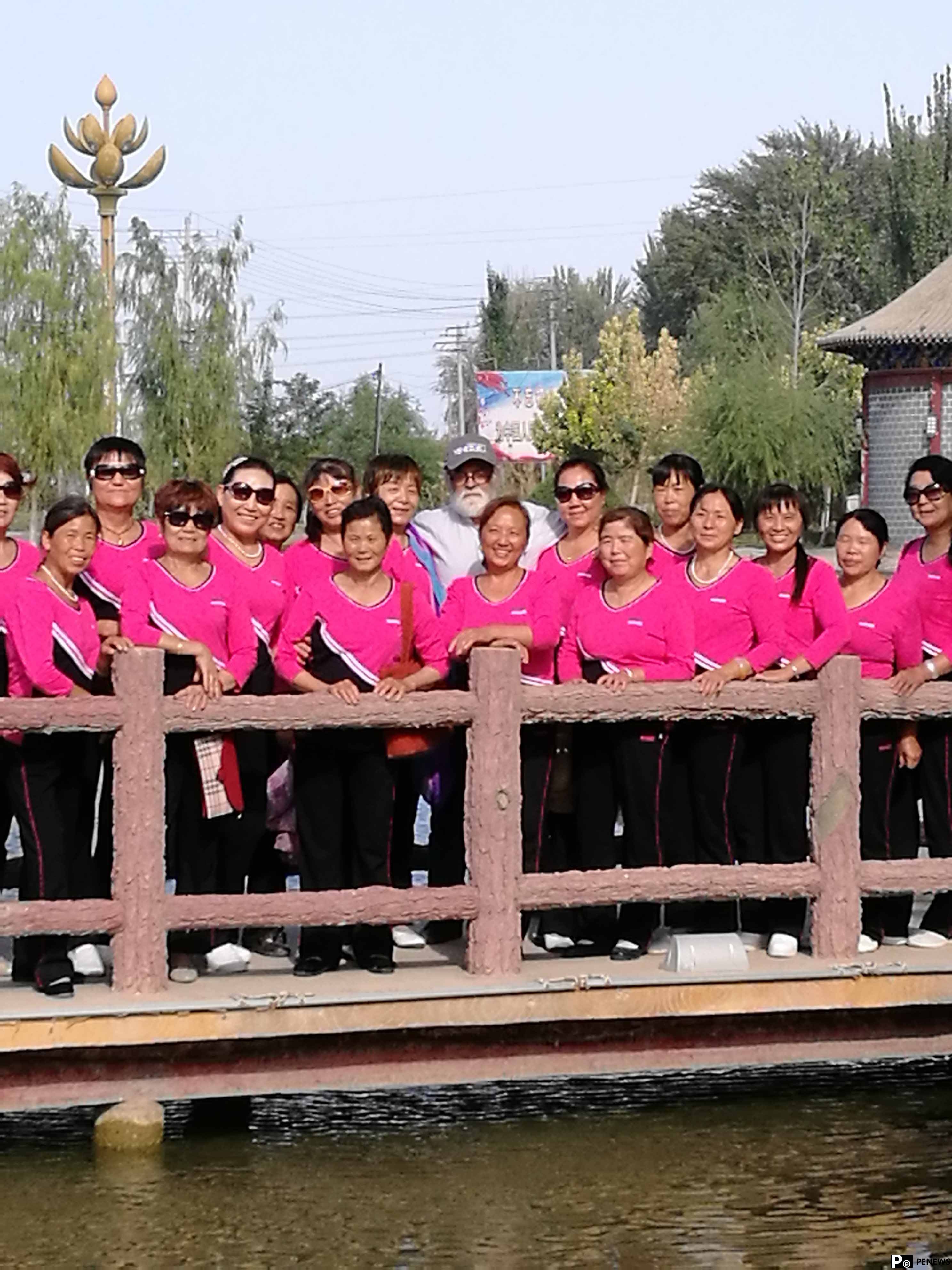
Maxime Vivas with local retired women. (Photo provided by Maxime Vivas)
To his disappointment, after communicating with young Western journalists, he found many of them do not know what the Charter of Munich is.

